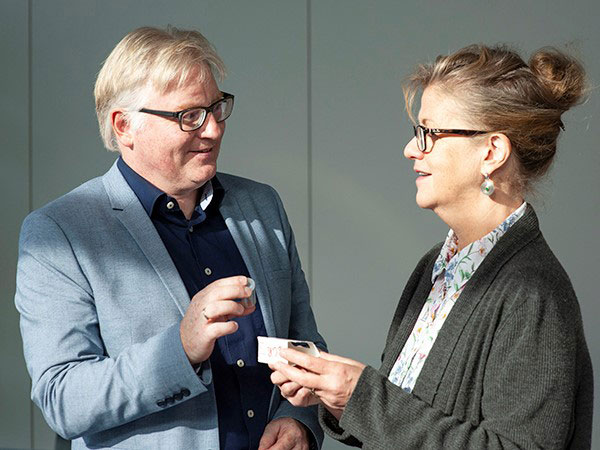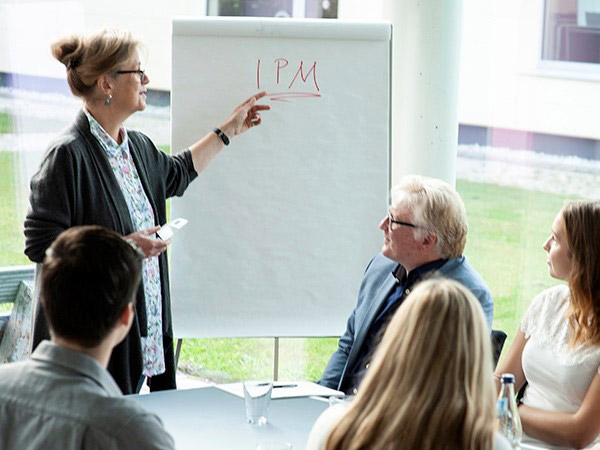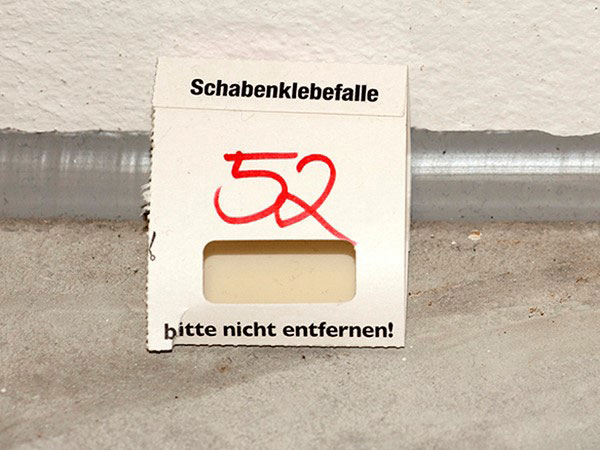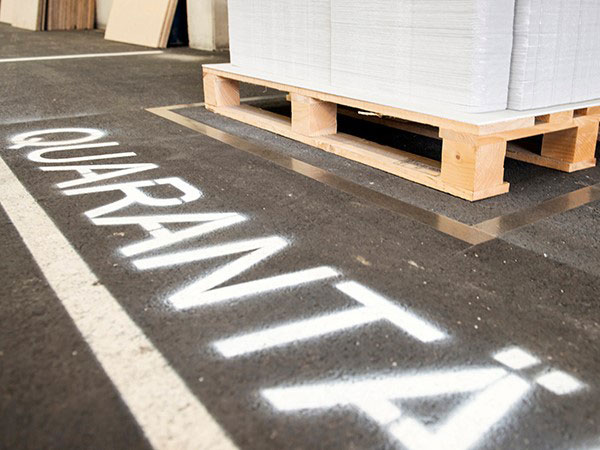Expertise
Working together hand-in-hand for the preservation of cultural artefacts: IPM measures at KLUG-CONSERVATION

Good strategies for the preservation of cultural artefacts also include Integrated Pest Management measures (IPM = Integrated Pest Management). Organisation of a functioning IPM-system has become increasingly complicated not least due to global climate changes. The proliferation of pests as well as their distribution – such as through storage and transport – represent a growing risk for infestation of cultural artefacts.
KLUG-CONSERVATION includes human beings as a risk factor in its IPM-system and continuously develops preventive measures in cooperation with customers, freight forwarders and suppliers in order to safeguard the preservation of our cultural heritage in the future.
KLUG-CONSERVATION’s IPM is in our house implemented as a standard, with all its measures corresponding to the DIN EN 16790: “Conservation of cultural heritage – Integrated pest management (IPM) for protection of cultural heritage”. The self-monitoring system includes coordination of measures necessary for prevention or during infestation. It comprises three core areas.
1. Preventive measures: prevention of infestation
2. Monitoring and diagnosis: recognition of infestation
3. Pest management measures as required
It is essential that monitoring and treatment are carried out according to a prevention plan rather than as required. Prevention is of primary importance. A comprehensive approach is utilised to prevent the risk of damage to cultural artefacts on the premises.
Even the best self-monitoring system can only be effective if all the parties involved cooperate. We can only achieve the best possible protection of our cultural artefacts if you – our customers, suppliers and freight forwarders – also implement the principles of IPM.
Our internal IPM officer Ariane Braun coordinates organisational and preventive measures in conjunction with our external consultant Stefan Biebl. She makes sure that measures are controlled and adhered to. KLUG-CONSERVATION exclusively offers IPM-monitored products. Please do not hesitate to contact our experts at ipm@klug-conservation.de
Prevention at KLUG-CONSERVATION
The following measures have already been implemented. We are constantly working on new ideas to supplement them – always with a view to providing the best possible protection for our historical sources.


- Internal IPM officers, external consultant
- Contact address: ipm@klug-conservation.de
- Training of all KLUG employees
- External training of Quality Assurance Department
- Monitoring in all company premises
- Regular IPM meetings (at least twice a year)
- Measures based on DIN EN 16790
- All joints in the building are finished as elastic joint seals
- Doors are additionally fitted with brush strips
- Additional cleaning cycles (apart from maintenance cleaning) for warehouse and production areas
- Vacuum cleaner with water filter
- Include IPM in the conduct rules of the house, e.g. no food on company premises, suitable work clothes, insect-protected windows etc...
- Risk assessment conducted for the entire company


- All pallets in compliance with IPPC standard
- Only EURO pallets of the categorization "new" according to UIC 435-2 correspond to ISPM15 / IPPC
- Availability of seaworthy packaging
- Trucks of our associated freight forwarder are disinfected every six weeks (IFS certification)
- All goods received are checked by Quality Assurance for signs of infestation
- Suppliers must meet minimum IPM requirements and/or be certified according to the BRC Global Standard for Food Safety
- KLUG-CONSERVATION products bear an “IPM-monitored” seal
- Instructions on what to do in case of infestation are made available to employees and customers
- A search dog is to be trained



